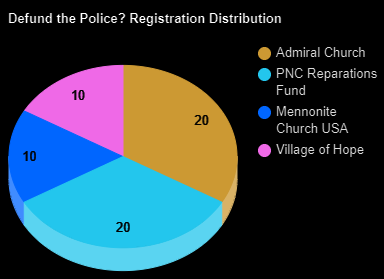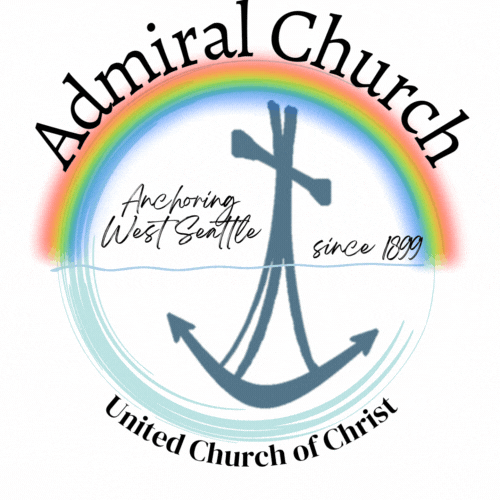Defund the Police?
An Abolition Curriculum

Sundays 12-1pm
February 13-April 10
Registration is Closed
CLASSES ARE FULL
This curriculum is an initial guide for congregations who are desiring to begin or continue their reflection on what it means to engage the forces of state, their commitments to non-violence and how to act to end policing and police brutality through the lens of Christian faith.
Admiral Church will host both in-person and online facilitated classes using the Mennonite Church USA curriculum (you can find the whole curriculum here). Both courses begin in mid-February and end before Easter.
Registration is required, cost is $60, scholarships are available.

Watch the TED Talk, “The urgency of intersectionality,” before the first group meeting as a way to ground the conversation in the concepts and necessity of intersectional thinking as coined by Kimberlé Crenshaw
Listen to the “Throughline: American Police” podcast on the history of policing. Find the audio here or wherever you listen to podcasts
Each unit will include an intro activity, an embodied ritual and a lesson connecting policing to the Scriptures. The curriculum will address the following topics:
Week 1: Individual and Community Safety
Week 2: The Purpose of Policing in the United States
Week 3: The History of Policing and Police
Week 4: Transformative Justice
Week 5: The Landscape of Policing – Incarceration and Bail
Week 6: The Landscape of Policing – Policing Our Children, SROs, School-to-Prison Pipeline
Week 7: The Landscape of Policing – Police and the Streets
Week 8: The Landscape of Policing – City Hall, Political Change and Revolution
Week 9: Review and Closing – 8 to Abolition and Next Steps
The curriculum was written to be used by Mennonite Church USA congregations in adult Sunday school classes, Bible studies, small/cell groups or even as family groups. While the curriculum is meant to be a catalyst for deeper study regarding how our faith as Anabaptists intersects with the call for police abolition, our desire is that it would also be a catalyst for faithful action in your local context and nationally.


